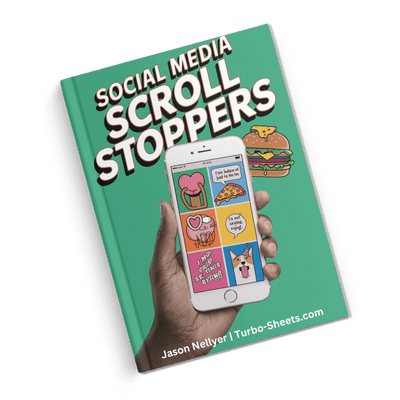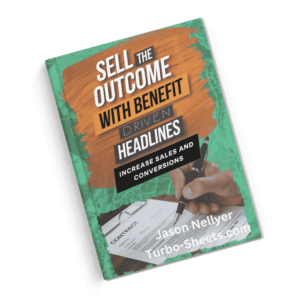🔥 Take Charge Of Your Blog With My Expert Tips and Tools! | Empowering You With My Blog and Resources!
Subscription "Auto-renew" Trap
How Greed Costs Reputation
Ever Felt "Stung" By An Online Companies Subscription Policy? Did It Auto-Renew With The Company Treating You Unethically (Perhaps Even Breaking Laws) Leaving A Bad Taste In Your Mouth? Let's Consider One Such Company "LeadSwift.Com" A B2B Lead Gen Company.
Par 1 - Conformist View for blah blah.
Par 2 - Bridge To Contrarian Opinion...
Par 3 - Contrarian View for blah blah.
Par 4 - Bridge to the article.
-
-
-
-
-
In This Article
-
-
-
-
-
Anatomy Of The Auto-Renew Trap
Paragraph - Intro to this section
The Rise Of The Subscription Model
Subscriptions are everywhere.
From streaming services and fitness apps to software licences and digital magazines, the subscription model has transformed how we consume products and services.
On paper, it looks like a win-win: the company gets predictable recurring revenue, and the customer gets ongoing access to something they value.
Assumptions We Make When We Subscribe
If you are a decent, honest and ethical person, by default you assume most people, especially businesses, are similar.
We kind of assume, "everything will be ok, everything will work out".
Our busy lives carry on, assuming in the background that decision we have made will continue to serve us well.
The Hidden Trap
But hidden within this shiny, modern business model lies a trap – the subscription auto-renew.
It’s the kind of trap that feels almost harmless at first. After all, isn’t it just convenient?
No need to remember renewal dates, no fear of service interruption.
In reality, though, it has become one of the most notorious pain points for consumers – a situation where people forget to cancel, are automatically charged, and then discover that the company refuses to refund them.
Even worse, these companies often double down, offering sham reasons, playing the blame game, or clinging to every possible excuse to keep the money.
And all for what? A short-term financial win that comes at the expense of trust, goodwill, and public reputation.
In this article, we’ll explore the subscription auto-renew trap in depth:
How customers feel when they fall into it.
Why these tactics are bad for publicity.
What good cancellation and refund policies should look like.
And why companies, in their greed for a relatively small amount of money, end up doing themselves a huge PR injustice.
Finally, we’ll turn the spotlight back on the recipient – the customer – and discuss what lessons can be learned from these experiences, shaping a more balanced, fair, and customer-centred subscription world.
Sham Excuses
The auto-renew trap usually follows a familiar pattern:
The Forgotten Subscription
A customer signs up for a trial or a 12-month subscription, fully intending to cancel at the end of the period. Life, however, has other plans.
People forget, emails slip through the cracks, reminders get lost in inboxes, and before they know it, the renewal date has come and gone.
The Silent Charge
The company quietly processes the renewal fee – sometimes a significant amount – without as much as a friendly reminder. One moment your bank balance looks normal, and the next, you’re staring at a debit you didn’t expect.
Realisation And Panic
The customer realises what’s happened. Perhaps they spot the charge immediately, or perhaps days later when reconciling finances.
Panic sets in: “I don’t even use this service anymore! Surely they’ll refund me if I explain.”
Dirty Excuses
And this is where it gets ugly. Instead of empathy, the company responds with a wall of policy-driven excuses:
“Our terms and conditions state all renewals are non-refundable.”
“You agreed to auto-renew when you signed up.”
“We can’t issue a refund because the system automatically activated your new subscription.”
“It’s the customer’s responsibility to cancel before renewal.”
All technically true, perhaps, but it completely disregards basic fairness and goodwill.
How Customers Feel
The customer is left frustrated, resentful, and out of pocket. The company?
It has gained a short-term financial win but has planted the seeds of long-term reputational damage.
Caught In A Trap
For the customer, the experience is more than just losing money - it’s about trust being broken.
Here’s what typically goes through their mind:
Frustration
They think “I don’t even use this service anymore. Why am I being charged for nothing?”
Betrayal
“This company doesn’t care about me. They just want my money.”
Helplessness
“They’ve made up their mind. No matter what I say, I’m not getting it back.”
Resentment
“Why should I ever give them another penny of my business?”
Compounded Emotions
A relatively small financial sting can spiral into a deep sense of injustice. People don’t just lose money – they lose respect for the brand. And here’s the crucial part: when people feel mistreated, they talk. They tell friends, family, colleagues, and sometimes the entire internet.
Why Auto-Renew Can Hurt Publicity
Businesses often underestimate the power of negative word-of-mouth in the digital age. In the past, if you had a bad experience, maybe you’d tell a handful of people. Today? You can write a scathing Google review, tweet about it, post on Trustpilot, record a TikTok rant, or even pen a blog post. Suddenly, thousands – even millions – of potential customers know exactly how shoddy the company’s practices are.
Let’s break down why this is such a PR disaster:
Small Amount, Big Outcry
Ironically, the sums in question are often small – £20, £50, maybe £100. Hardly worth a company’s reputation. Yet the emotional weight customers attach to feeling cheated makes the backlash disproportionate
Bad Optics
When people see a big company refusing to refund a loyal (or even former) customer over a forgotten cancellation, it looks greedy, heartless, and corporate. No brand wants to be painted as the villain.
Lasting Stains on Reputation
Refund disputes don’t just vanish. Reviews linger. Screenshots of customer service replies live forever online. Every time someone searches for the company’s name, the complaints are there, slowly eroding trust.
Erosion of Trust Across the Industry
These bad actors don’t just harm themselves; they make customers wary of subscriptions in general. That hurts honest companies too.
Sham Excuses
Let’s call them out. Companies often justify refusing refunds with lines that, while technically correct, are morally hollow.
Sub-Heading #1
Paragraph
Sub-Heading #2
Paragraph
Sub-Heading #3
Paragraph
-
-
Sham Excuses
Paragraph - Intro to this section
“It’s In The Terms And Conditions.”
Terms and conditions are necessary, but they should be a safety net – not a weapon against the customer. Hiding behind legal jargon is a quick way to appear dishonest. In all events, regardless of what you agreed to, your statutory legal rights overide any agreement with them. Similarly, their statutory obligations override anything in their T&C's.
“It’s You Who Controls The Subscription”
The attempt here is to blame you and absolve themselves of all responsibility. As a subscription provider, they have legal, moral and ethical obligations starting with sending out subscription reminders in plenty of time. When you ask them why they designed this out of their system, they fall silent, because THEY KNOW the "auto-renewal trap" was deliberately built in. Companies that seek to blame you are narcissistic, they believe they have godlike rights over your money. So when they say "it's you who controls the subscription", ask them why they took some of that control away, by removing the subscription reminder. Ask them why they won't refund (within a reasonable time-scale on a reasonable basis). All evidence points towards plain and simple corporate greed.
“We Are Not A Large Organisation”
They are almost begging you to feel sorry for them and their snatching of your money. Truth is, you aren't a large organisation either! (And can ill afford to give away money). Remind them that all organisations large or small (like them) have legal, moral and ethical obligations to subscribers and that as a small organisation, their reputation and affiliates are their lifeblood. It would be a shame if you started leaving 100% honest reviews on all possible sites, related YouTube videos, your own blog and reached out to affiliates to highlight the company they deal with (wink wink lol).
“We Are Not A Profitable Startup”
This one was actually said to me. This fact is completely irrelevant to the auto-renew subscription and your refund request. Remind them that being in this position means its imperative they got their policies right and treat customers ethically. This starts with clear, understandable, fair policies that put customers first. As a startup, they will appreciate the value of a good review but also realise the impact a bad negative (and honest) review can have. A good review can only come from an interaction that the customer feels was correct and ethical, ask them what action they would need ot take to ensure you didn't leave a bad review but left none (or even a good review).
“You Had Access, So The Service Was Provided.”
This is the classic excuse. The company argues that because the account technically exists, the customer has received value – even if they never logged in once.
It’s like charging rent on an empty flat and then insisting the tenant “used” it by virtue of holding the keys.
“It’s Your Responsibility To Cancel.”
While true, it ignores the human element. People forget. A brand that treats its customers like people, not case numbers, earns loyalty. In their attempt to transfer all responsibility to you they offload their own legal, moral and ethical obligations.
“Our System Doesn’t Allow Refunds.”
Translation: “We don’t want to refund you.” Systems can always be adjusted. This excuse insults the customer’s intelligence.
“That's Extortion”
I couldn't believe it when I was accused of this (after threatening to write this very blog post if a 100% refund did not occur). I checked the dictionary. Apparently, extortion is "the practice of obtaining something, especially money, through force or threats". At face value, the use of the word "extortion" was correct. But let's remember, firstly it's MY MONEY and secondly, it was THEY who obtained it through force (the auto-renew subscription trap). Forcefully retrieving your own funds will never be defined as "extortion". Any supplier using this term in a subscription auto-renew trap clearly does not understand the law and has obvious narcissistic tendencies!
“We Operate Like Netflix...No Reminder Required”
There's a big difference here. Netflix have a low monthly subscription amount. A suppliers auto-renew annual subscription is often a very large amount. You have a lot more to lose. A seocnd difference is that your Netflix payment is by direct debit. Most banks advise of upcoming DD's on your mobile phone app. Having a small recurring monthly subscription is clearly expected. A large annual one is much less expected. Further, it often occurs when you are trying a service out or are less likely to use it on a rolling basis (i.e not one of life's "necessities"..if indeed Netflix is that).
A second key difference is exposure to loss. With Netflix, you lose maybe £15. With an annual subscription, this might be thousands. So RISK is a massive difference between a monthly Netflix subscription and an annual suppliers subscription.
Also, when you sign up to a monthy subscription (like Netflix) you clearly expect it to keep auto-renewing each month. But the logic is not the same with an annual subscription (even it it is auto-renew). Annual payments are often seen as fixed term (unless explicitly stated), and once again, multiple reminders before renewal is just really good practice. Designing this step out is a dereliction of moral and ethical good practice.
“You Can Only Pause Your Subscription"
Translation: “we are keeping your money, but altering your usage period". This is a manipulation technique. If you don't want their services, you shouldn't have to pay for them. Push for a full refund. Be sure not to use any of their services, otherwise this complicates matters.
What Good Policy Looks Like
The fix isn’t complicated. In fact, companies could transform the subscription experience – and win customer loyalty – with a few simple principles:
Transparent Reminders
Send clear, timely reminders before a renewal. A week before, a day before, even on the day. Make cancellation easy and obvious.
Fair Refund Windows
Offer a grace period – for example, 7 or 14 days - where customers can request a refund if they forgot to cancel.
This small act of goodwill shows that the company values people over policies.
Pro-Rata Refunds
If someone cancels mid-cycle, refund the unused portion. It’s fair, simple, and customer-friendly.
Simple Cancellation
Stop hiding cancellation buttons behind endless menus.
If someone wants to leave, let them leave. Making it easy builds trust.
Empowered Customer Support
Train staff to resolve issues empathetically, not defensively.
A supportive tone can turn a frustrating experience into a positive one.
-
Corporate Greed - The Real Cost
It’s easy to understand why companies cling to non-refundable renewals. Recurring revenue looks good on spreadsheets, investors like predictability, and finance teams hate churn. But what’s rarely calculated is the PR cost of greed.
Lost Lifetime Value
By refusing a £50 refund today, a company may lose thousands in future purchases. Once trust is broken, it’s rarely restored.
Viral Backlash
One angry customer with a Twitter thread can undo months of marketing spend.
The cost of a refund is pennies compared to the cost of a tarnished reputation.
Customer Flight
Competitors with friendlier policies benefit. People switch services not just for price or features, but for fairness.
How You Can Fight Back
While the blame lies with greedy companies, customers caught in the auto-renew trap can learn and adapt. These lessons help prevent future headaches:
Track Subscriptions
Use tools or calendar reminders to keep tabs on renewal dates. Out of sight, out of mind is what these companies bank on.
Cancel Trials Early
If you’re only testing a service, cancel immediately after signing up. You’ll still get the trial but won’t risk forgetting later.
Use Virtual Cards
Services like Revolut or Monzo offer disposable virtual cards.
Use one for trials and subscriptions, and you control exactly when payments stop.
i.e One trick is to keep this card at NIL balance, let the first payment attempt bounce (there shouldn't be any bank fees).
Then load the card with the required amount of money to allow the 2nd attempt to clear.
NEVER link a subscription to an account where you store your main cash!
Speak Out
Leave honest reviews, share experiences, and hold companies accountable. The more people push back, the harder it becomes for bad practices to survive.
Lessons For Subscription Providers
The irony is that companies could turn cancellation into a moment of brand love, rather than resentment. Here’s how:
Build Loyalty Through Fairness
Customers who feel respected are more likely to return. Even if they cancel today, they’ll come back tomorrow if they remember being treated fairly.
Leverage Goodwill for Marketing
Imagine the positive PR of customers saying, “I forgot to cancel, but they refunded me without fuss. Amazing company!” That’s free advertising.
Think Long-Term, Not Short-Term
The few pounds “saved” by clinging to auto-renew fees are nothing compared to the lifetime value of a happy customer.
-
Standing Out In The Market Place
In a crowded subscription economy, fairness can be a differentiator.
A generous cancellation policy isn’t just customer service – it’s a competitive advantage.
Sub-Heading #2
Paragraph
Sub-Heading #2
Paragraph
Sub-Heading #3
Paragraph
-
-
-
-
-
Conclusion
The subscription auto-renew trap is more than just an annoyance – it’s a case study in how greed can backfire. Companies cling to small amounts of money, hiding behind policies and excuses, while customers walk away angry, betrayed, and ready to tell the world about their experience.
The lessons are clear:
For customers, awareness and proactive management of subscriptions can prevent falling into the trap.
For companies, fairness, transparency, and empathy are not just nice-to-haves – they’re essential for long-term success.
In their rush to grab quick wins, businesses often forget the golden rule: treat customers how you would want to be treated. When a company chooses goodwill over greed, it doesn’t just keep a customer – it earns a fan, an advocate, and a reputation that money can’t buy.
The real irony? In trying to cling desperately to “what’s theirs,” companies lose something far more valuable: the trust of the people who keep them in business.
Points For Consideration
-
- blah
- blah
- blah
- blah
- blah
Hi! I'm Jason!

Hey there! I'm Jason and i'm here to help you succeed with your online business.
Whether you are an internet marketer or a regular business with a website I can help you succeed.
Looking for more traffic, leads or sales? Stick around, you've come to exactly the right place to help you succeed!
(And yeh, I LOVE coffee!)
Let's Connect!
Subscribe
Join 20,000+ subscribers and get access to my free resources right in your inbox.
Grab This Free Ebook!
Bloggers Swipe File
Never struggle with content ideas again!
Learn How To:
- Write compelling headlines
- Structure engaging posts
- Boost reader engagement
- Increase shares and traffic
- Save time on writing
Pay nil at the checkout!
Hit the button and complete via checkout.
Be Quick! Get It Free Before The Counter Hits Zero!
Grab This Free Ebook!
Hypnotic Openings
Grab attention from the very first sentence!
Learn How To:
- Write curiosity-driven intros
- Use storytelling for impact
- Set the tone instantly
- Create emotional connections
- Keep readers hooked
Pay nil at the checkout!
Hit the button and complete via checkout.
Be Quick! Get It Free Before The Counter Hits Zero!
Grab This Free Ebook!
Click-Worthy Headlines
Boost your open rates with subject lines that demand attention!
Learn How To:
- Write curiosity-driven subjects
- Use power words effectively
- Leverage personalisation
- Create urgency and FOMO
- A/B test for best results
Pay nil at the checkout!
Hit the button and complete via checkout.
Be Quick! Get It Free Before The Counter Hits Zero!
Grab This Free Ebook!
Killer Blog Post Headlines
Struggling to come up with blog titles?
Learn How To:
- Write click-worthy titles
- Use power words effectively
- Optimise for SEO and social
- Create curiosity and urgency
- Increase reader engagement
Pay nil at the checkout!
Hit the button and complete via checkout.
Be Quick! Get It Free Before The Counter Hits Zero!
Grab This Free Ebook!
Persuasive Guarantees
Eliminate buyer hesitation with compelling guarantees that build trust and boost conversions.
Learn How To:
- Craft trust-building guarantees
- Reduce purchase hesitation
- Use social proof effectively
- Make bold but believable claims
- Turn sceptics into buyers
Pay nil at the checkout!
Hit the button and complete via checkout.
Be Quick! Get It Free Before The Counter Hits Zero!
Grab This Free Ebook!
Powerful Postscripts
The last thing readers see is often the most persuasive!
Learn How To:
- Use postscripts for impact
- Reinforce key benefits
- Create urgency effortlessly
- Add emotional appeal
- Boost conversions instantly
Pay nil at the checkout! Hit the button, go to the menu (shopping cart) (no purchase req'd), then complete via checkout.
Be Quick! Get It Free Before The Counter Hits Zero!
Grab This Free Ebook!
CTA Closers
A weak CTA means lost sales!
Learn How To:
- Write clear, action-driven CTAs
- Create urgency and scarcity
- Use persuasive language
- Guide readers effortlessly
- Increase sales and engagement
Pay nil at the checkout!
Hit the button and complete via checkout.
Be Quick! Get It Free Before The Counter Hits Zero!
Grab This Free Ebook!
Sell The Outcome
People don’t buy products - they buy results!
Learn How To:
- Highlight key benefits
- Speak to reader desires
- Create irresistible curiosity
- Tap into emotions effectively
- Increase conversions instantly
Pay nil at the checkout!
Hit the button and complete via checkout.
Be Quick! Get It Free Before The Counter Hits Zero!
Grab This Free Ebook!
Scroll Stoppers
Stand out in crowded feeds with scroll-stopping techniques!
Learn How To:
- Craft eye-catching headlines
- Use power words effectively
- Create curiosity-driven content
- Boost shares and interactions
- Drive more clicks and leads
Pay nil at the checkout!
Hit the button and complete via checkout.
Be Quick! Get It Free Before The Counter Hits Zero!
Grab This Free Ebook!
Perfect Headlines
Your title makes or breaks your blog post!
Learn How To:
- Write SEO-friendly titles
- Grab attention instantly
- Use curiosity for engagement
- Increase shares and clicks
- Convert readers into fans
Pay nil at the checkout!
Hit the button and complete via checkout.
Be Quick! Get It Free Before The Counter Hits Zero!
Grab This Free Ebook!
Convert With Bullet Points
Turn scanners into buyers with bullet points that sell!
Learn How To:
- Highlight key benefits
- Create intrigue effortlessly
- Keep readers engaged
- Maximise sales copy impact
- Make content easy to scan
Pay nil at the checkout!
Hit the button and complete via checkout.
Be Quick! Get It Free Before The Counter Hits Zero!
Grab This Free Ebook!
Action Headlines
Your headline is your first impression - make it count!
Learn How To:
- Use power words strategically
- Create curiosity and intrigue
- Structure headlines for impact
- Make readers take action
- Write for SEO and engagement
Pay nil at the checkout!
Hit the button and complete via checkout.
Be Quick! Get It Free Before The Counter Hits Zero!























